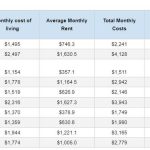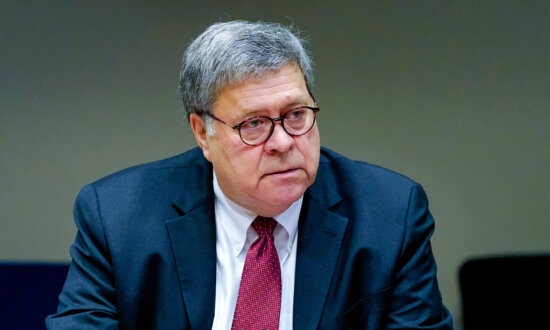Authored by Thomas McArdle via The Epoch Times,
As the old saw goes, a banker is someone who lends you his umbrella when the sun is shining and then wants it back as soon as the first drops of rain fall.
Hostility toward money lenders goes way back. In the Middle Ages in Europe, to deposit your money with one was unlawful, “even as it would be unlawful to deposit one’s sword with a madman, a maiden with a libertine, or food with a glutton.”
Loans may no longer be against the law, but bankers have been, and still are, convenient villains in popular culture.
In the movie “It’s a Wonderful Life,” for example, old man Henry Potter mocked George Bailey’s just-deceased father by remarking that “ideals without common sense can ruin this town.” And he said of George issuing a loan to his friend Ernie, Bedford Falls’s cabby, “You see, if you shoot pool with some employee here, you can come and borrow money.”
Were the now-failed Silicon Valley Bank and Signature Bank acting sensibly or madly? And did they shoot pool with powerful Washington figures in hopes that they could avoid ruin despite their lack of sense?
How much common sense is there in the “ideals” associated with SVB not having a chief risk officer for most of last year as it hurtled toward collapse, but at the same time employing a chief diversity, equity, and inclusion officer and making a point of focusing on climate change, and social and corporate governance policies? “Issues of inequity in the innovation sector” apparently mattered more to SVB president and CEO Greg Becker than the soundness of his bank’s loans in an environment of rising interest rates amid high inflation.
It’s no shock to find that Joe Biden’s presidential campaign and political action committees were bestowed with at least $11,900 from SVB executives, with SVB managing director Gerald Brady giving $5,600 to Biden’s 2020 campaign, according to the Federal Election Commission. The Democratic National Committee and various party politicians are announcing the return or the money or donating funds received to charities.
Congress early this month moved against a Biden administration rule forcing pension funds holding $12 trillion of 150 million Americans’ savings to include environmental, social, and corporate governance (ESG) in their investment decisions—in other words, make your retirement finances dependent on the same kind of thinking that led SVB to collapse. ESG equities distinctly underperform the market.
Who can forget Jimmy Stewart as George Bailey scrambling to hand out cash meant for his honeymoon to beleaguered depositors during the run on the Bailey Savings & Loan? But the tone-deaf sixteenth largest bank in the country was handing out company-wide bonuses to its employees for their 2022 work just hours before the government had to take it over.
In the case of Signature Bank, it wasn’t George Bailey shooting pool, it was superstar bankers poached from competitors in at least one case spending “most of his week golfing with prospective clients.” Big Signature Bank customers ultimately included rap superstars. And speaking of Ernie the Bedford Falls cabby, among Signature’s peculiar banking practices was to encourage taking out loans to buy New York City’s infamously expensive taxi medallions—in itself a regulatory shell game—in expectation of Uber and Lyft upending the passenger transport landscape.
Of far more import, however, was Signature’s over-exposure in cryptocurrency, where it placed over a quarter of its $109 billion in deposits before the FTX debacle last year that sent crypto spiraling to earth.
The bailing out of these two boutique, politically fashionable institutions by the “wokest” of woke presidents is for the benefit of the well-to-do; most of the tens of billions of dollars in deposits exceed the Federal Deposit Insurance Corporation’s (FDIC) $250,000 ceiling. Would a bank in deep trouble in, say, Roberts County in the Texas panhandle, where the median average family income is $50,400, have received such exceptional treatment from Uncle Sam?
And don’t swallow Treasury Secretary and former Federal Reserve chairwoman Janet Yellen’s claims that the “bank fees”-funded rescues will leave no taxpayers on the hook. Like any other business, banks ultimately pass the taxes and fees imposed upon them by the government down to their customers, whether it happens individually or collectively, conspicuously or in hidden manner. As Fordham University law school professor and bank bailout expert Richard Squire points out, while management at SVB and Signature may be being allowed to save face, “the venture capital firms and the startups are being bailed out. There is no doubt about that.”
The Biden administration’s nearly $5 trillion in spending is the engine behind the inflation that forced the Federal Reserve to embark on an extended policy of raising the interest rates under its direct control—which in turn has put the squeeze on banks, especially those conducting fast and loose financial practices. But as scary as that chain reaction may be, the FDIC’s guarantee to reimburse all the rich uninsured depositors at the two failed institutions, making an exception to its $250,000 cap, and no matter how big the depositors’ accounts, is more alarming.
Such measures take the United States down a road toward total nationalization of the banking system and removes the indispensable elements of accountability and discipline all businesses need: certainty that misjudgment and irresponsibility must come with a cost.
When Washington bails that out, America turns into Potterville.
Loading…












